How to Use Gemini on Google Home (Step-by-Step Guide)
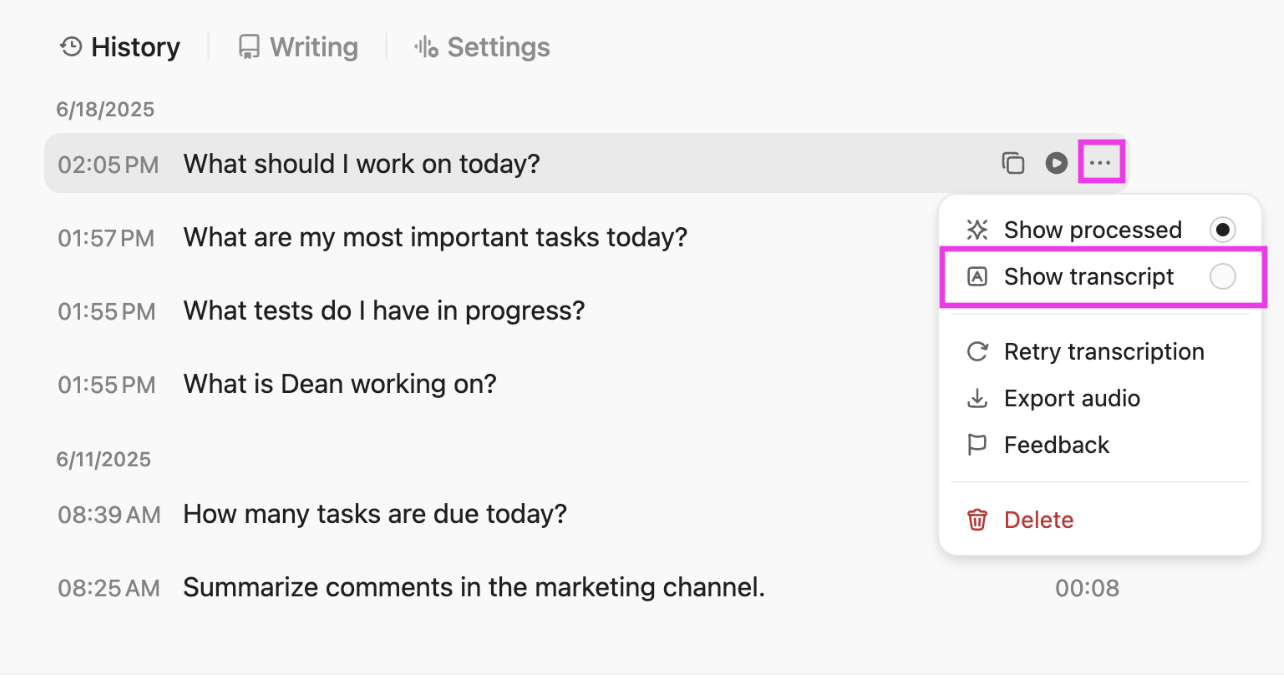
Sorry, there were no results found for “”
Sorry, there were no results found for “”
Sorry, there were no results found for “”

You’re standing in your kitchen with chocolate-covered hands, trying to pause music that’s suddenly way louder than you meant it to be.
You call out to your Google Home, and instead of the usual, ‘Sorry, could you repeat that,’ Gemini responds with a more helpful answer than you’re used to.
That’s the (cherishable) moment this guide sets you up for.
If you’re a smart-home user, tech enthusiast, or someone who simply wants your Google Home or Nest device to do more, learning how to use Gemini on Google Home is the way to go. Let’s go through everything you need! 💫
🔍 Did You Know? One of the first homes wired for automation was built by Emil Mathias in Jackson, Michigan, in 1950, where many routine tasks could be done with the push of a button, predating most commercial smart-home ideas.
Gemini is Google’s generative artificial intelligence model, designed to provide advanced natural language processing, complex reasoning, and content generation across multiple formats, including text, images, audio, and video.
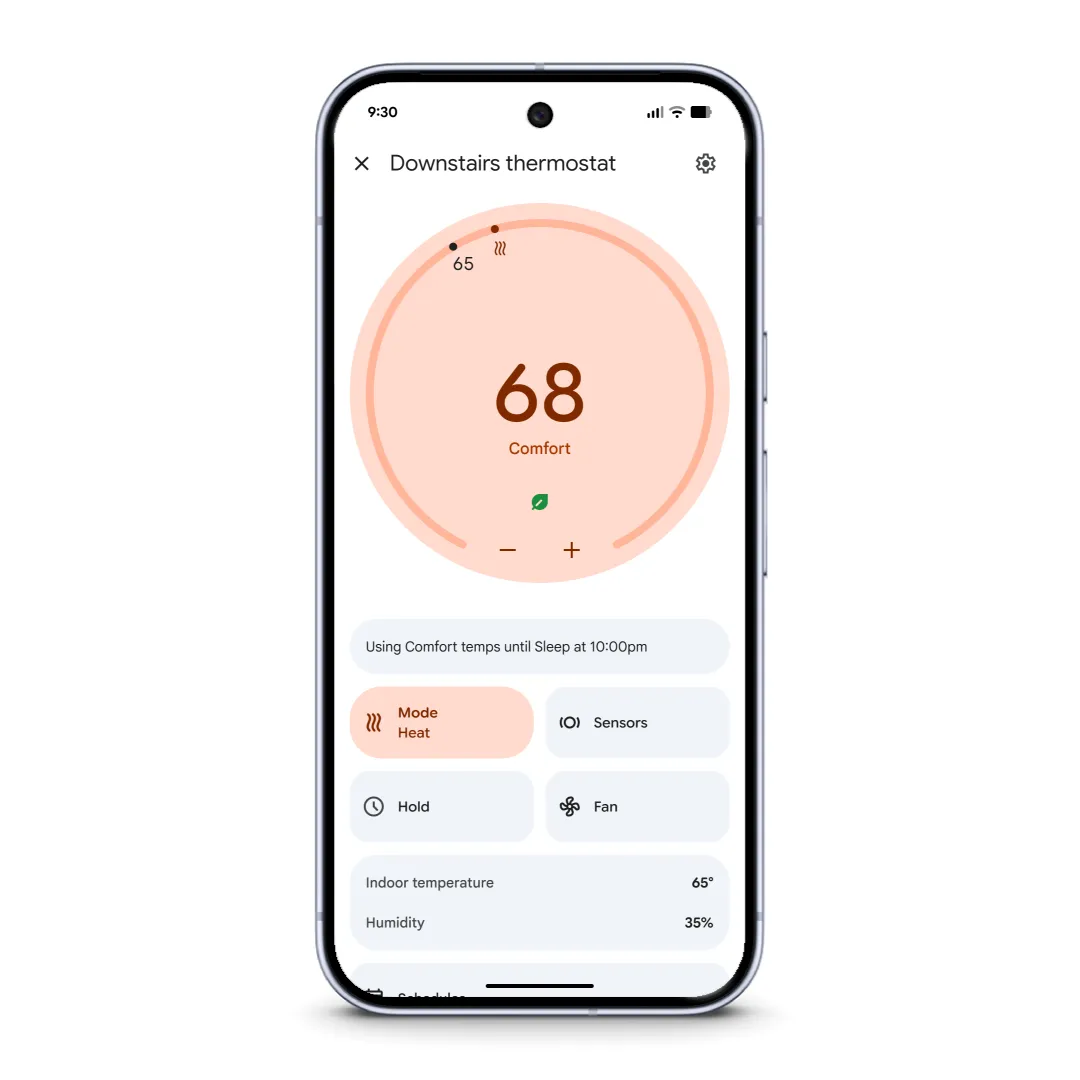
It’s a multimodal AI system, which means it can interpret and generate information using different kinds of data. The AI virtual assistant is integrated across Google products and services as both a model and a conversational chatbot.
Just to be clear, Gemini and Google Assistant are two different tools. Here’s how they differ:
| Feature | Google Assistant | Gemini |
| Core purpose | Optimized for quick, command-based help | Designed for deep, contextual, multimodal tasks |
| Interaction style | Short voice queries, direct responses | Chat-style, detail-rich, nuanced conversations |
| Data modalities | Primarily text and voice | Text, images, audio, video, code |
| Complexity of queries | Handles simple day-to-day requests | Capable of advanced reasoning and content creation |
| Learning and memory | Limited contextual memory | Advanced contextual understanding, multi-step memory |
| Best use cases | Reminders, smart home, simple queries | Writing, research, code generation, summarization |
| Integration | Broad device coverage | Deep with Google Workspace, gradual wider rollout |
Before you begin the setup, ensure you have all the necessary items. Here are some essentials to sort through before you use AI as a personal assistant:
🧠 Fun Fact: The communication protocol X10 debuted in 1975 and used a home’s existing power wiring to send signals to devices like lamps or appliances. This made it one of the first truly smart home systems, although its reliability was shaky.
Before you switch over to Gemini, it’s worth confirming that your Google Home or Nest device actually supports it.
Compatibility varies across models, and some features, especially Gemini Live, may only work on newer devices or require a Google Home Premium subscription.
Here’s how to check device compatibility:
This quick check helps you confirm whether your setup is ready for Gemini before moving on to installation and settings.
🔍 Did You Know? In the U.S., 48% of households now own at least one smart-home device; within that, 59% of people aged 18-34 own smart devices, indicating that younger users are leading the adoption.
Ready to get Gemini running on your Google Home or Nest device? Just follow each step in order, and before you know it, you’ll be talking to Gemini! 💬
We’ve already covered this, but please ensure your Google Home or Nest devices support the Gemini protocol. You should also update the Google Home app and the device firmware to the latest versions.
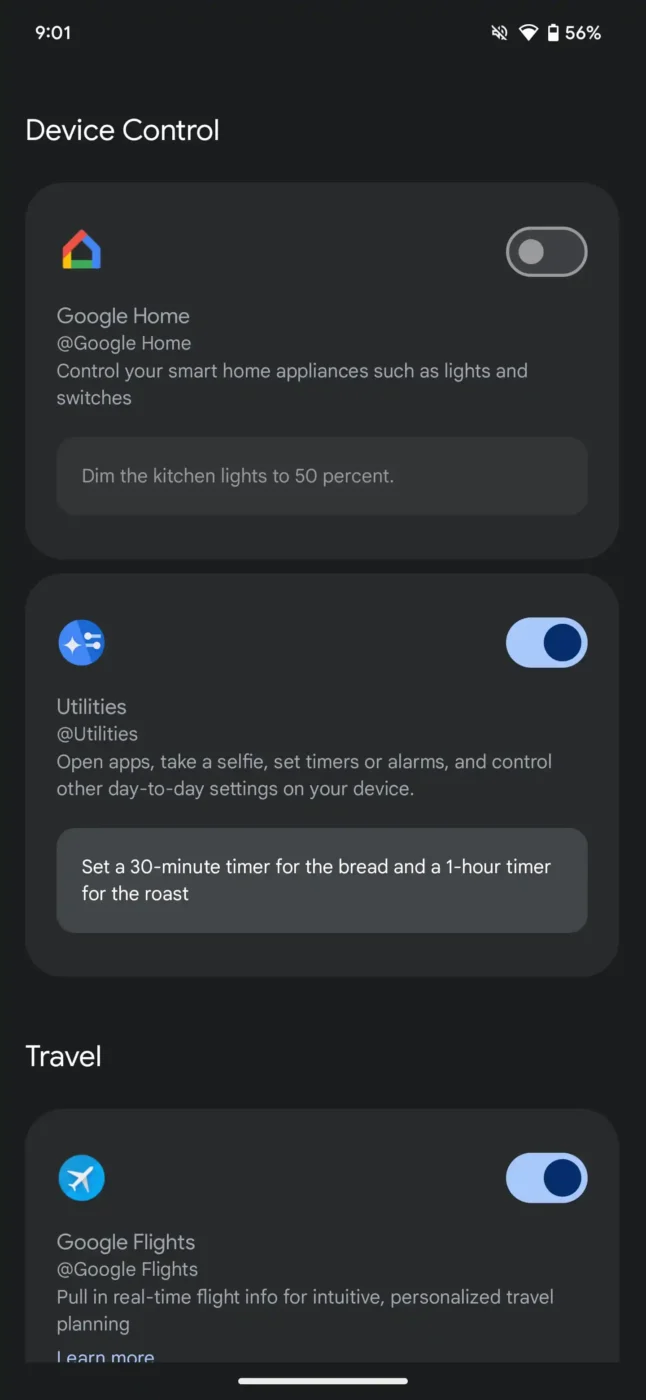
Some users will see an in-app prompt in the Google Home app inviting them to switch to Gemini. If you don’t see one, you can head to Settings and look for the Gemini upgrade under notifications or assistant-related settings.
📖 Also Read: ChatGPT SEO Prompts for Better On-Page Optimization
To activate Gemini, open the Google Home app, choose your device, and go to its settings. Under Google Assistant or Digital Assistance, select Gemini from the available options. The app will guide you through the final confirmation steps.
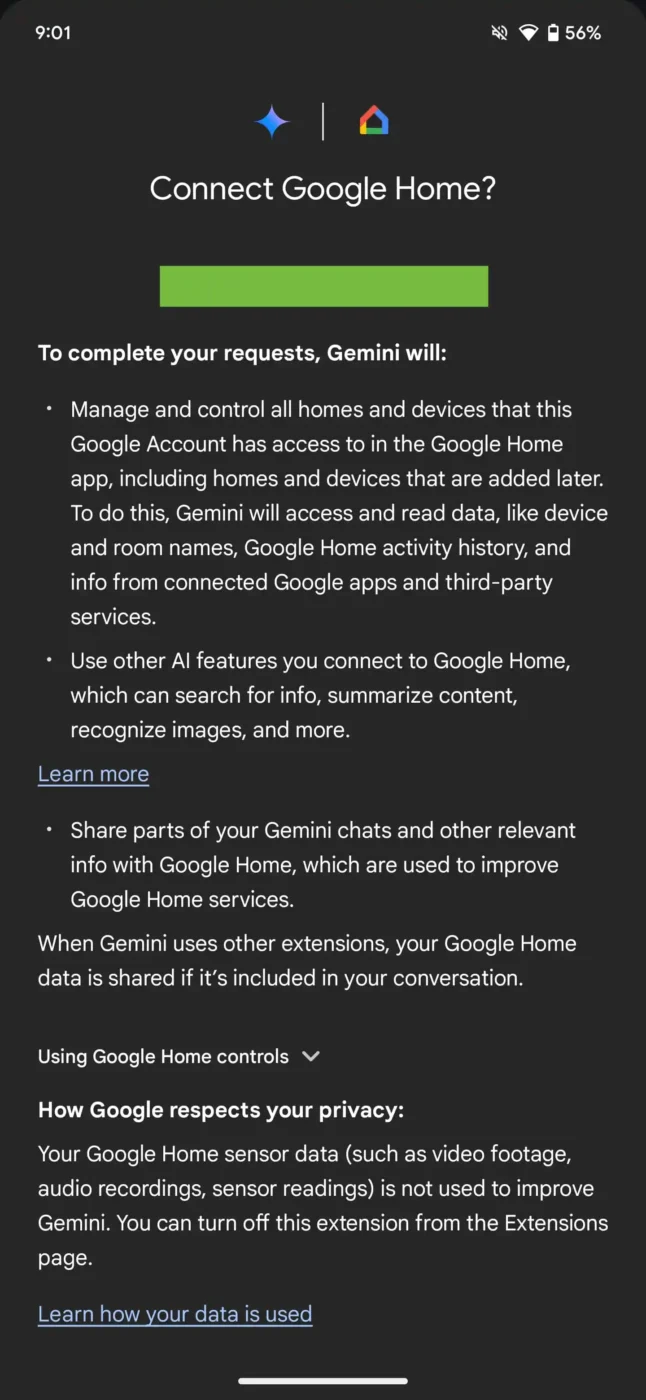
🧠 Fun Fact: In 1966, a prototype called the ECHO IV (also dubbed ‘Kitchen Computer’) could compute shopping lists, switch appliances, and regulate home temperature. It never sold broadly, but it was the first smart‐home concept many point to.
Voice Match helps Gemini recognize who is speaking and tailor responses accordingly. You can enable it under your Assistant settings. This enhances accuracy for tasks such as reminders, calendar entries, and personal preferences.
If you want deeper integration, open the Gemini mobile app, tap your profile icon, and navigate to Extensions > Device Control.
Turning on the Google Home connection gives Gemini additional control over your smart home devices. This creates a smoother experience when using it to manage lights, appliances, and automations.
🔍 Did You Know? The idea of the smart home was played out in science fiction long before real tech caught up. Ray Bradbury’s story ‘There Will Come Soft Rains’ (1950) featured a house that functioned autonomously after humans were gone, foreshadowing today’s always-on homes.
Once Gemini is active, you can begin speaking naturally and issuing commands. You can control lights, thermostats, media playback, and other smart home devices using conversational phrasing. You can also ask for reminders, schedules, facts, and more.
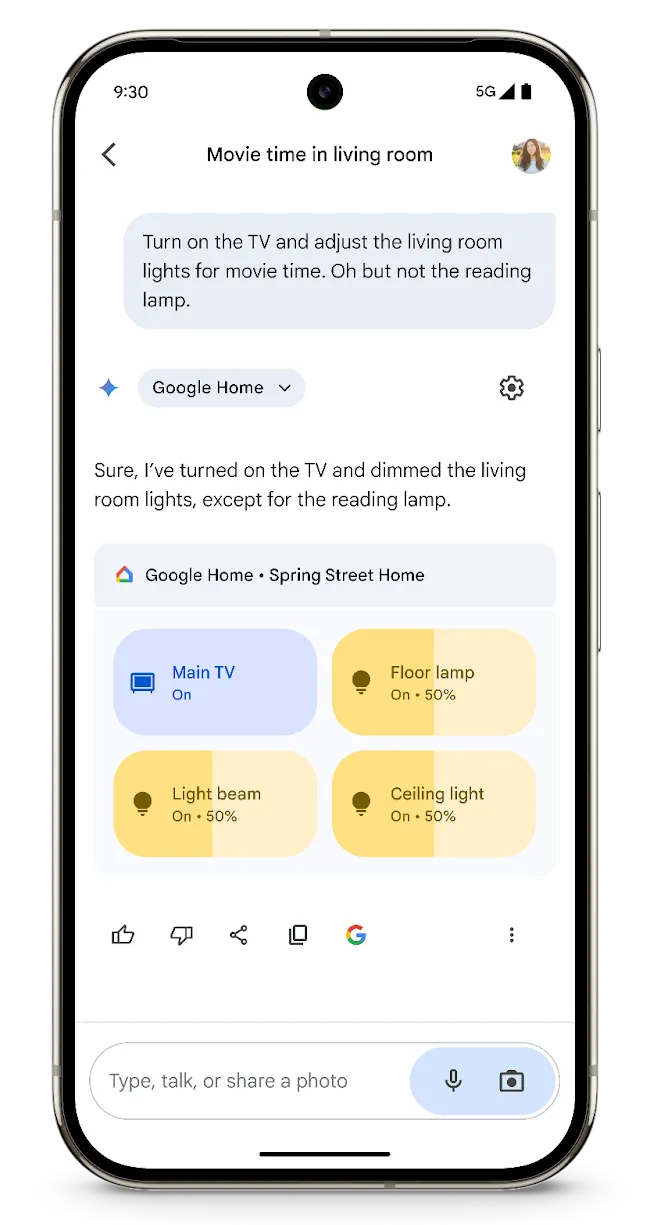
Routines you’ve set up in the Google Home app will typically work with Gemini, but some may require updates. All your devices should be properly connected and available. If certain actions stop working after switching, reconfigure the routine from scratch.
If you’re among Google Home Premium subscribers, you’ll get enhanced capabilities like Gemini Live, advanced camera history search, smarter alerts, and richer automation support.
These features depend on your plan and hardware type, especially if you use Nest cameras or displays. And that’s it, you’re done!
📮 ClickUp Insight: Trust, accuracy, noise, and social discomfort are the top reasons people hesitate to use voice-to-text features at work—27.5% say it’s all of the above.
Brain MAX gets it. Its AI is built to handle real-world noise, transcribe with precision, and keep your data private, which means no third-party training and zero third-party data retention.
Whether you’re in a busy office or a quiet home, you can speak up confidently and let this AI super app do the heavy lifting.
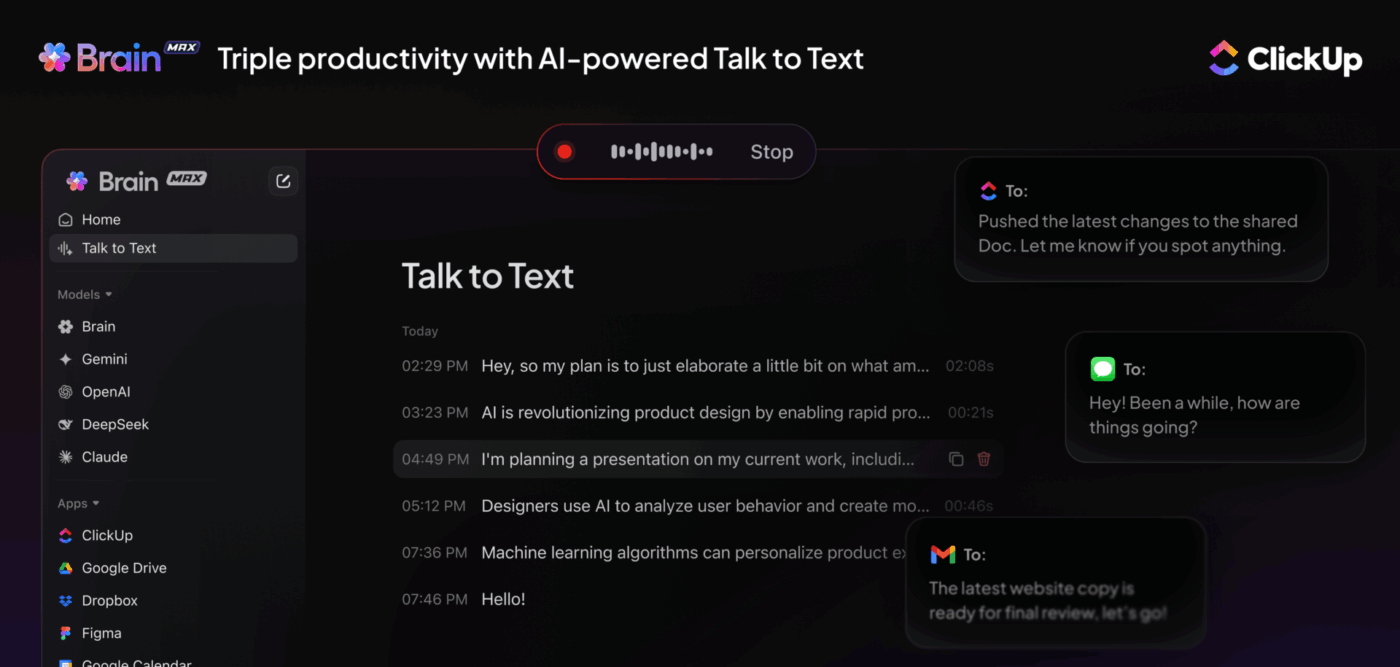

Gemini adds a layer of intelligence to Google Home. It understands context better, responds more naturally, and handles complex requests.
Your Google devices can interpret detailed instructions, such as ‘turn off the lights everywhere except my bedroom’ or ‘play the song of the year winner from 1990.’ It also boosts home security via home camera features with searchable history, improved notifications, familiar-face detection, and a daily Home Brief that summarizes key events.
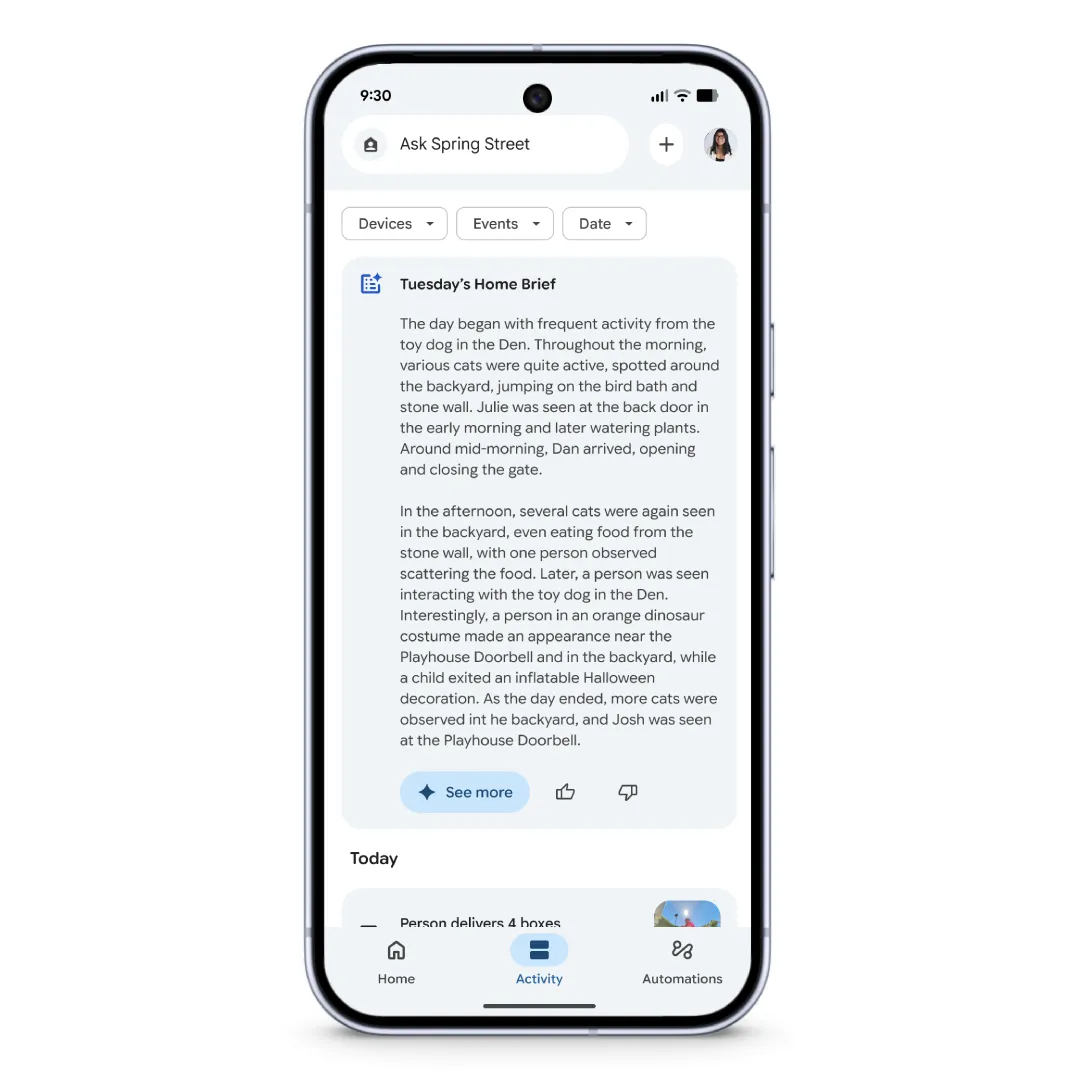
These upgrades extend across the entire Nest ecosystem, supported by a redesigned Google Home app that’s faster and more reliable. If you choose the Google Home Premium subscription, you also unlock additional features, including a longer event history, smarter alerts, Gemini Live for conversational chat, and more personalized automations.
Overall, Gemini provides a proactive system that simplifies daily routines, enhances security, and ties your smart home together.
📖 Also Read: How AI Email Assistants Reduce Overload
Since Gemini understands context and handles complex requests, you can speak to it naturally. Here are some practical commands:
🎥 Watch: AI isn’t just for techies anymore—it’s your new personal assistant.
In this video, we’ll show you exactly how I use AI to take care of repetitive tasks, brainstorm new ideas, and keep projects on track.
You’ll see real-world examples of using AI for scheduling, research, project management, and content repurposing:
Switching to Gemini unlocks a powerful AI experience. However, it’s still rolling out, and some users are encountering issues.
Here are common issues you might face and how to fix them:
| Issue | Solution |
| Gemini not responding to commands | Ensure Gemini is enabled in the Google Home app. Check Assistant, and device control settings |
| Voice commands misunderstood or misinterpreted | Rephrase commands with specifics, typing commands in the app. Check language and accent compatibility |
| Automations and routines not working | Review and reconfigure routines. Verify devices that are onlineUpdate apps and firmware |
| Loss of control over smart devices after a Gemini update | Check device connectivity, reboot Google Home and the router, and verify device inclusion in Google Home routines |
| Features missing (e.g., broadcast via app buttons) | Use voice commands for unsupported features. Look for Gemini-specific toggles in settings |
| Slow or delayed Gemini responses | Keep device firmware and Google Home app updated, Reduce network congestion |
| Incorrect or partial execution of multi-step commands | Break commands into simpler steps and provide clear context |
| Persistent bugs or errors | Send feedback via ‘Ok Google, send feedback’. Consider toggling Gemini off temporarily |
| Google Home app unable to find devices for routines | Confirm devices are in the correct Google Home ‘Home’ and move devices if needed |
| Home and Away automations not triggering correctly | Enable location services, verify device presence sensing settings, and toggle Home/Away mode in the app |
Gemini isn’t perfect yet. Certain devices don’t support everything, and a few familiar Google Assistant actions may work differently. Let’s look at some problems you might face:
Gemini on Google Home is great for managing your home.
However, there’s a gap: your smart home runs smoothly, yet the tasks Gemini helps you remember don’t align with where you actually manage your life and work.
You ask Gemini to remind you about the contractor’s visit or add “review home insurance” to your list, but those reminders stay trapped in Google’s ecosystem. They don’t sync with your project tracker, your family’s shared calendar, or the workspace where you’re coordinating home renovations.
ClickUp solves this as the world’s first Converged AI Workspace. While Gemini handles your smart home automation, ClickUp connects your personal tasks, home projects, and work responsibilities in one place.
You can use ClickUp’s voice-powered Talk to Text to capture home maintenance tasks, assign chores to family members, or update renovation timelines—all hands-free.
This AI super app eliminates Work Sprawl by connecting everything. This way, nothing slips into oblivion between smart home convenience and real-life follow-through (which TBH is a struggle). ⚒️
Talk to Text by ClickUp isn’t just another voice-to-text tool. It’s designed for real productivity, letting you capture ideas, assign tasks, and update projects on the fly, whether you’re at your desk, in the car, or multitasking at home.

Unlike Gemini, which is focused on Google’s smart-home ecosystem, ClickUp’s solution is built for anyone who wants to get more done, across work and life, without being tied to a single platform.
Here’s how you can use Talk to Text:
And instead of switching between ChatGPT, Claude, Gemini, and other standalone assistants, Brain MAX provides a single AI layer and a unified platform for getting answers, automating work, and surfacing insights. This means you get all premium AI models under one roof with ClickUp.
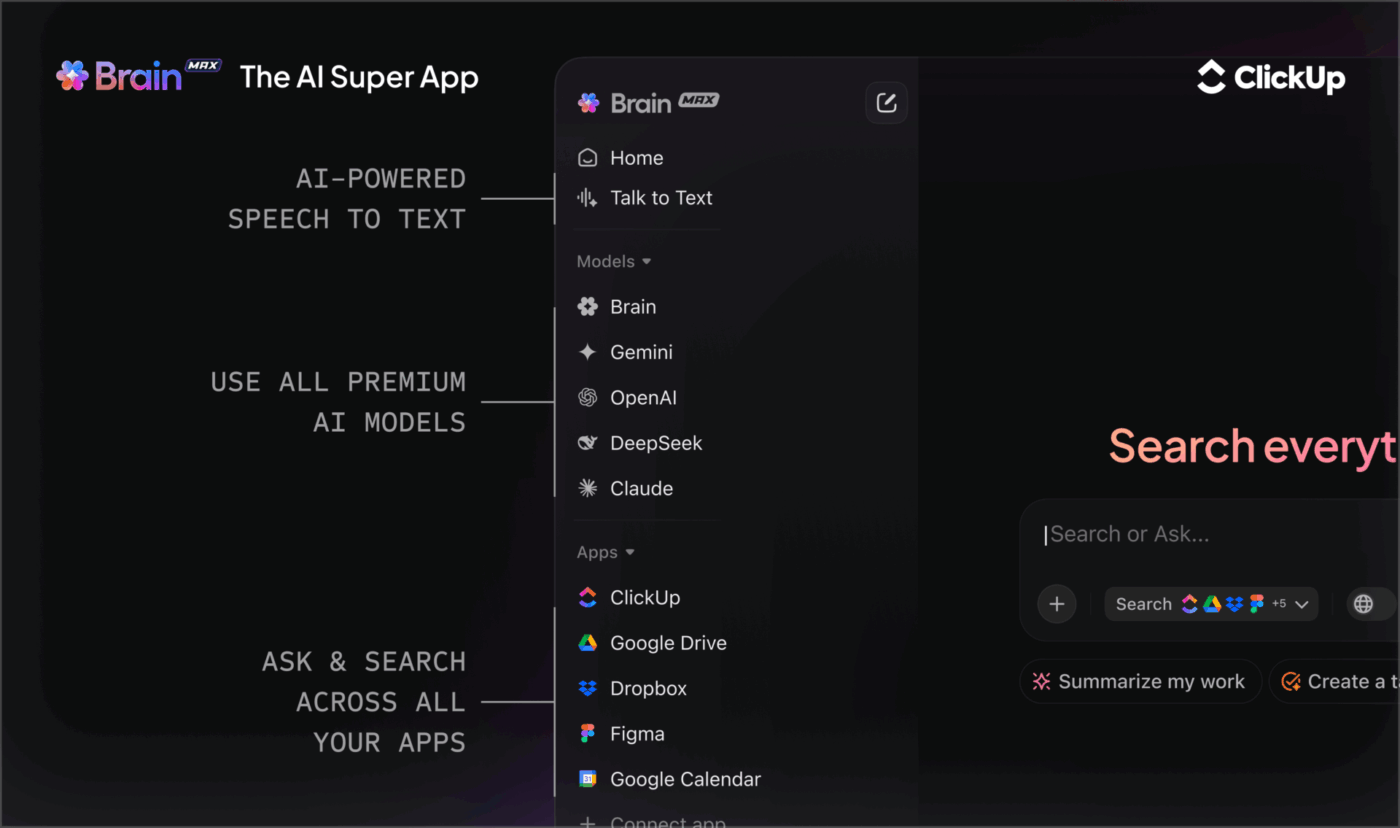
When you’re juggling home maintenance tasks, family schedules, and work deadlines, it’s tough to see the full picture i one place. ClickUp Calendar helps you map out your tasks, schedules, and recurring routines in a clear, visual layout.
You can drag, drop, and reorganize your day, assign work to different team members, and create repeating schedules.
For smart-home users and tech enthusiasts, this works especially well when you want your work to mirror the same level of structure your home automations provide.
For example, if you use Gemini to dim the lights every evening at 7 p.m., you can use ClickUp Calendar to schedule your daily wrap-up tasks at the same time. And ClickUp Tasks turns those home-related to-dos into organized, trackable items with due dates, priority levels, and assignees.
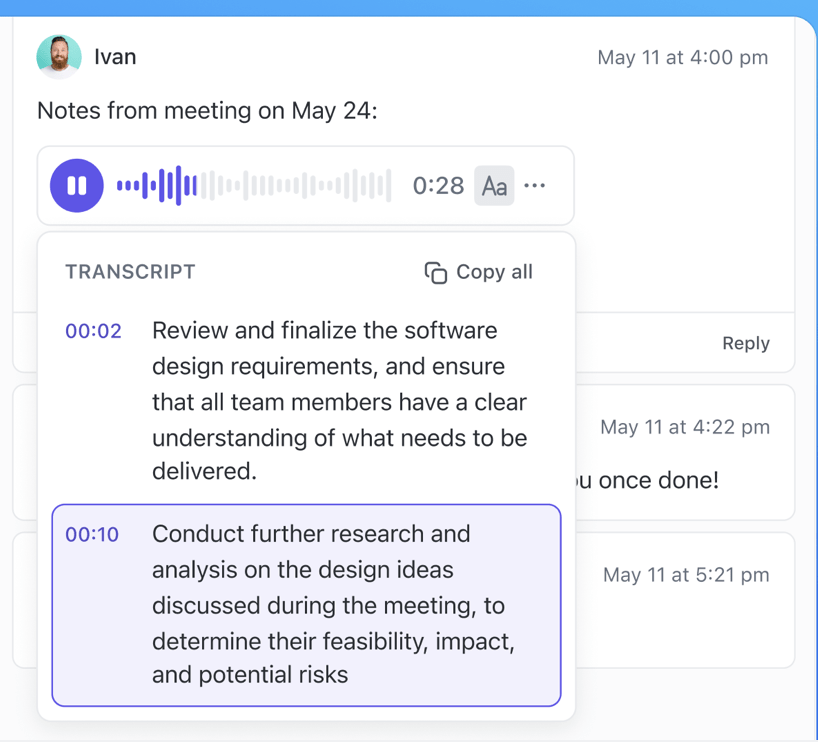
With ClickUp, everything stays visible and actionable, rather than being scattered across different devices as voice reminders.
🚀 Quick Hack: Get a centralized space to capture every workflow, routine, and automation setup with ClickUp Docs. Using Docs alongside your tasks ensures all your planning, lists, and instructions are always connected to your work and easy to find.
With ClickUp Docs, you can:
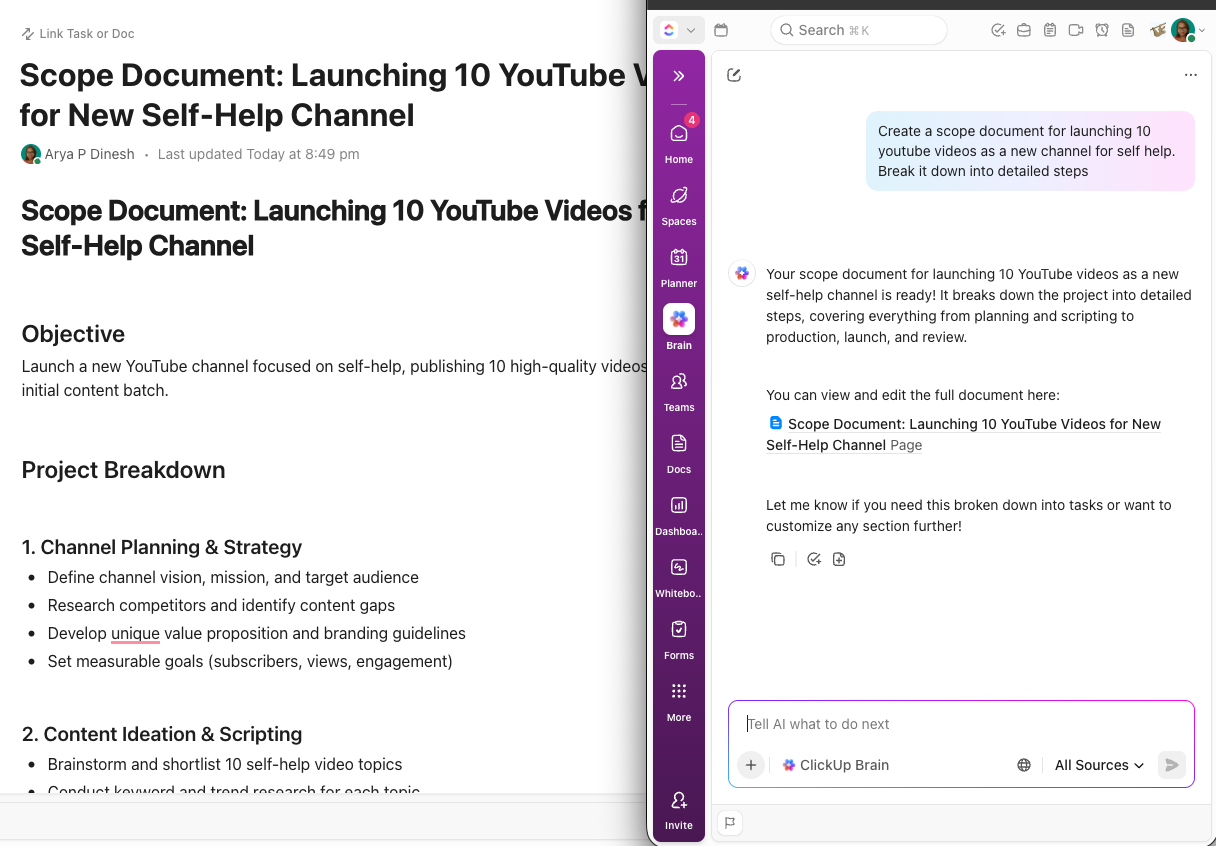
ClickUp Brain adds an AI-powered intelligence layer that transforms how you plan, track, and execute work. Built within your ClickUp workspace, it connects Tasks, Docs, conversations, and team knowledge so you can get answers immediately.
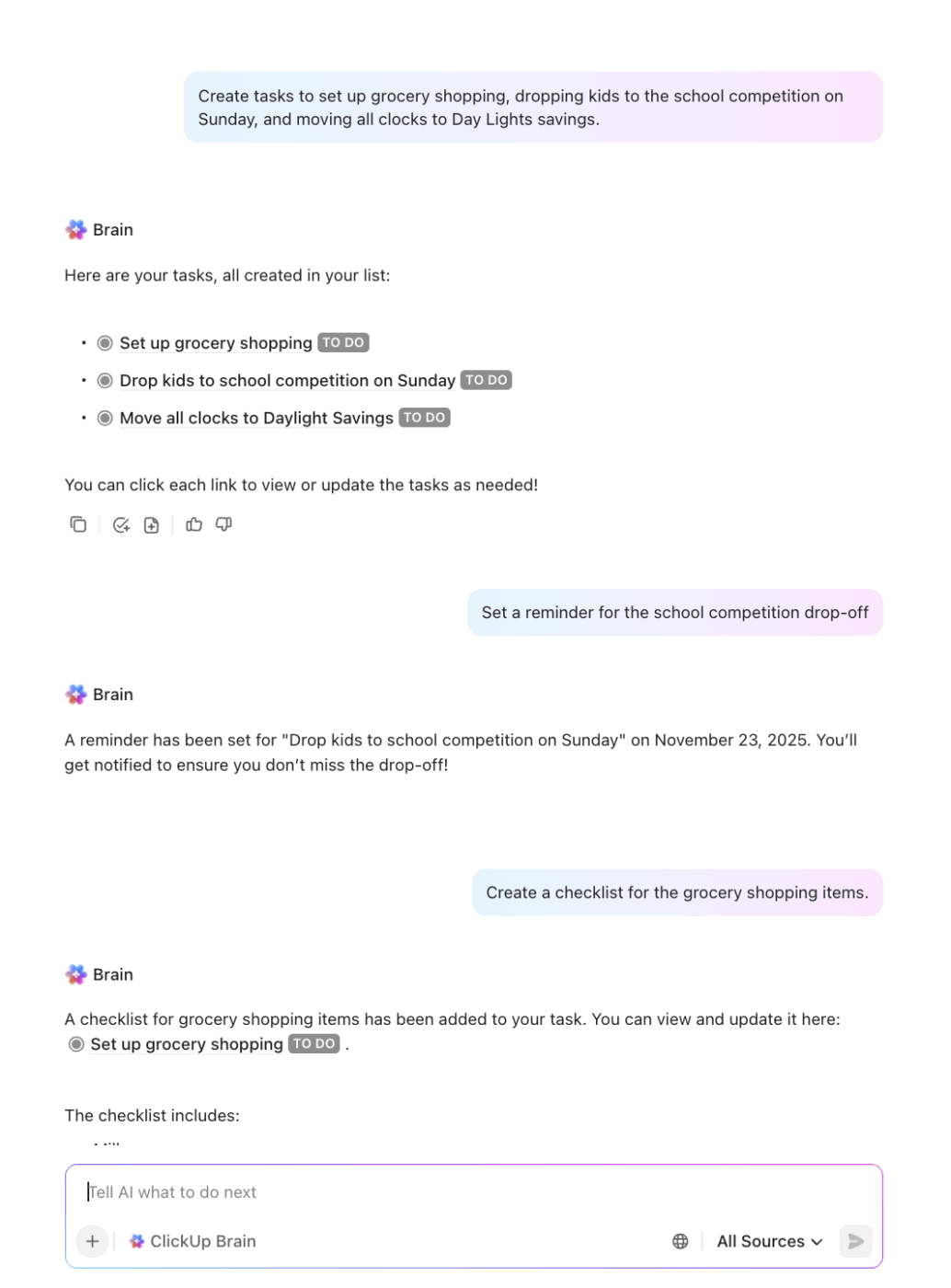
It handles routine admin work, anticipating what you need, pulling context from across your workspace, and generating updates or documentation automatically.
Imagine you’re planning a family vacation. With ClickUp can:
ClickUp Automations let your teams skip the manual, repetitive steps that slow projects down. You can create your own ‘if this, then do that’ rules that scale perfectly across teams and project types.
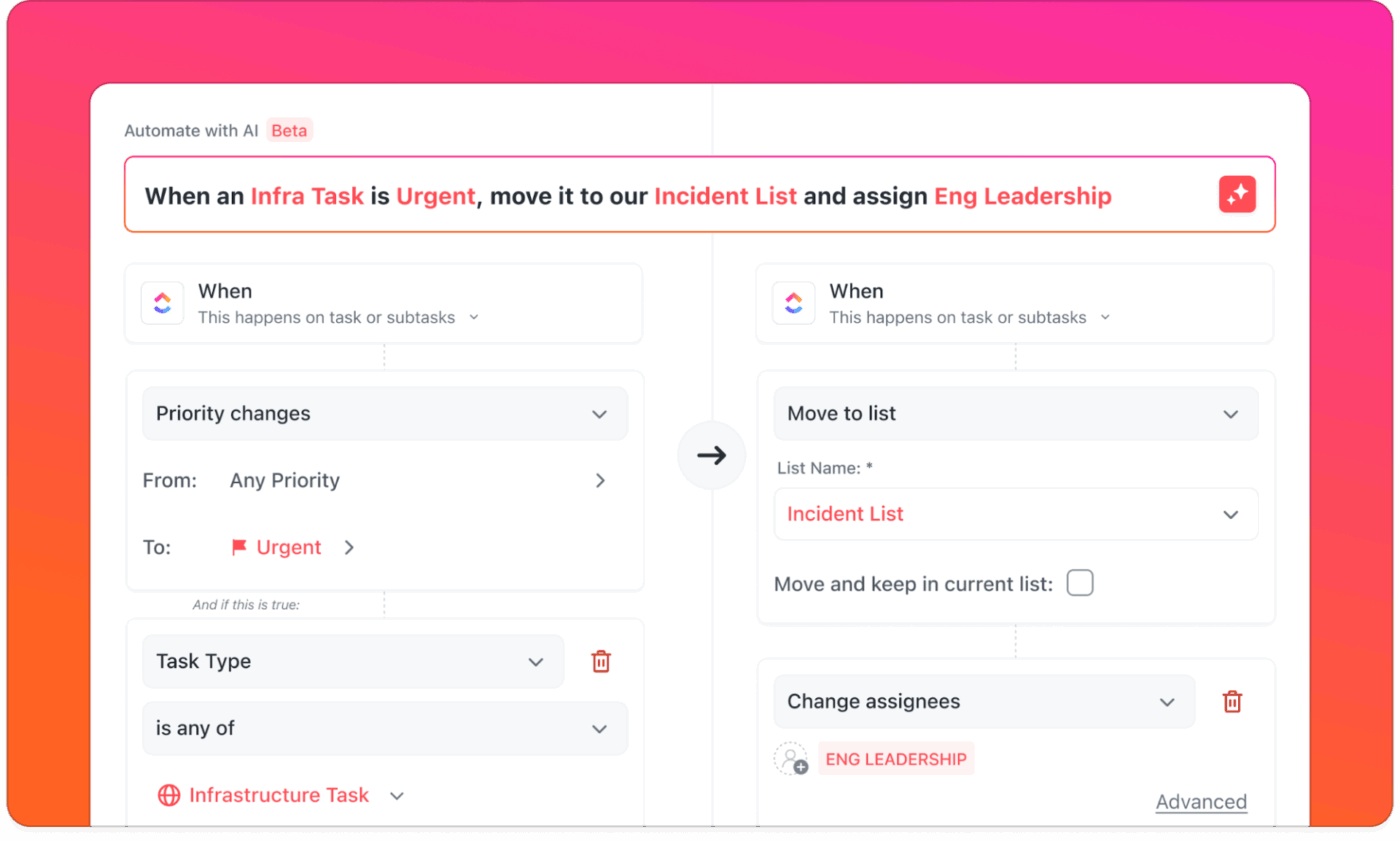
Here are some automation examples:
Want more advanced, customizable automation and workflow management across both digital and physical environments? ClickUp Agents handle deeper, multi-step logic and respond intelligently to real activity across your workspace.

You can build Prebuilt Agents to get instant value or build your own Custom Agents for advanced, team-specific workflows. Prebuilt agents come with ready-to-use structures that automate common team rituals. Here are some great ones:
On the other hand, Custom agents allow you to design your own logic using triggers, conditions, and actions.
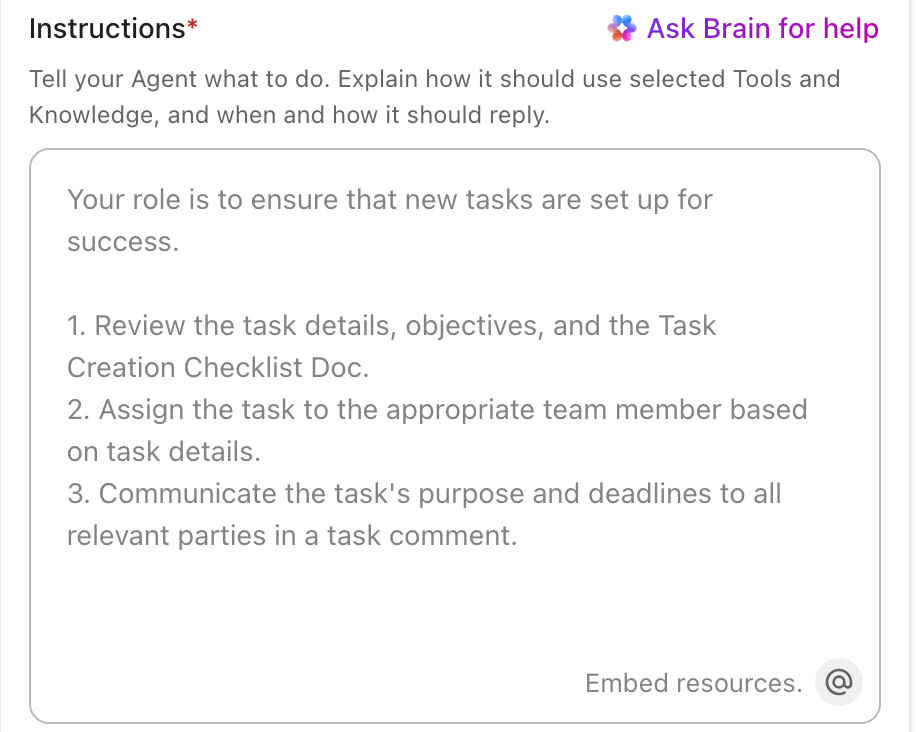
You can create these with a built-in no-code AI agent builder:
ClickUp Dashboards give you a customizable command center for everything happening across your workspace. They are a powerful way to manage and visualize AI-driven insights from tools like Gemini, all in one place.
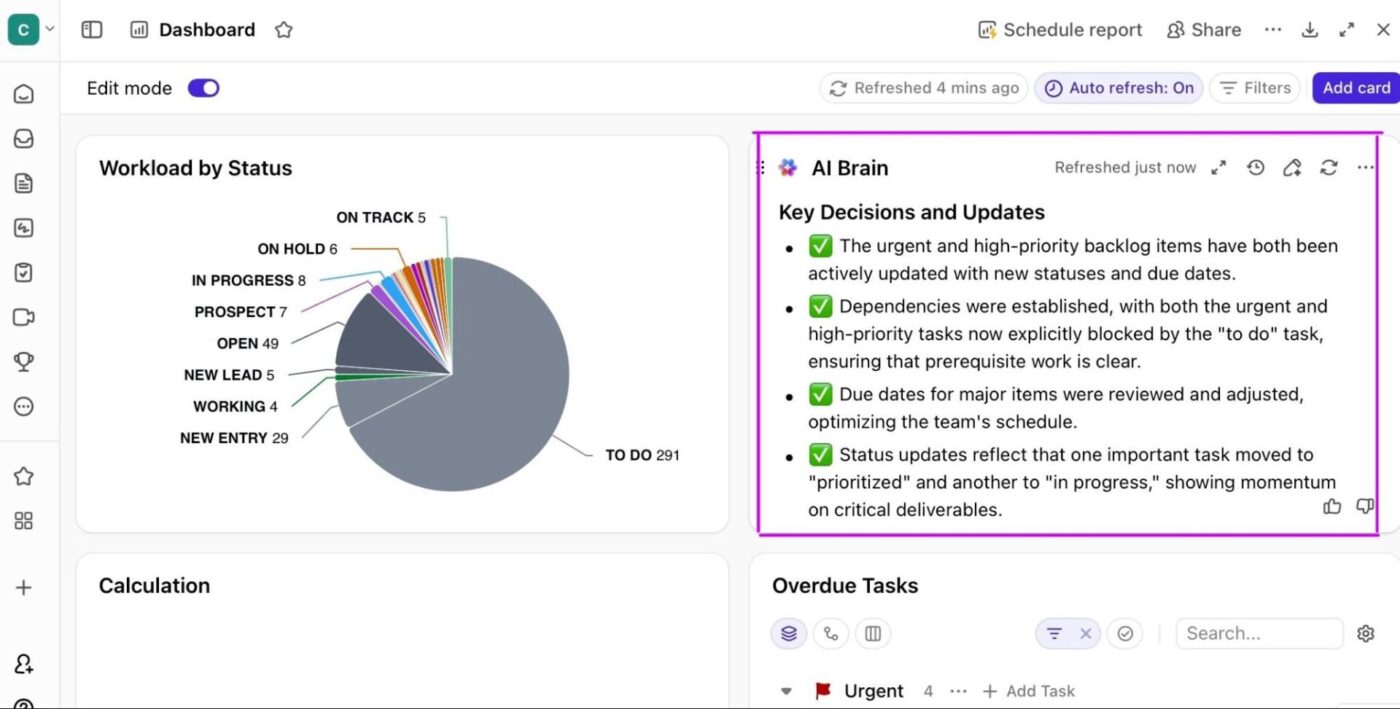
Here’s how:
So now you’ve got Gemini running smoothly on your Google Home, answering questions, managing routines, and helping you get more done hands-free.
If you want to extend this efficiency into your day-to-day work, there’s ClickUp Brain waiting for you. It pulls your tasks, Docs, goals, conversations, and AI tools into one place so you’re not juggling countless apps.
With ClickUp Brain and Brain MAX built right in, you get smarter task creation, instant answers, meeting summaries, and workflow automation. If you liked the convenience of using Gemini with a simple voice command, you’ll love how ClickUp helps you organize every part of your personal and professional life.
Sign up to ClickUp for free today! ✅
No, Gemini isn’t supported on every model yet. It works on a specific set of Google Home and Nest devices, including newer models like the Nest Mini (2nd gen), Nest Audio, Nest Hub (1st and 2nd gen), and Nest Hub Max.
You can switch back through the Google Home app. Go to your device settings, look for the assistant preference option, and choose Google Assistant instead of Gemini. If you don’t see the option, check for app or firmware updates since Google is still rolling out these controls.
Yes, Gemini can control many third-party smart home devices, as long as they’re compatible with Google Home. If your lights, plugs, or appliances already work with Google Assistant, they’ll typically work with Gemini too.
Start by checking your Wi-Fi connection and ensuring your device’s microphone isn’t muted. Then, open the Google Home app to see if your device needs an update or if there’s an alert related to Gemini. You can also try rebooting your speaker or display. Visit Google’s support pages or community forums if nothing helps.
Google hasn’t announced a firm date. Gemini is gradually taking over certain features and devices, but Assistant is still available and supported. The transition may continue over months or longer, depending on hardware compatibility, regional rollout, and user feedback. For now, both assistants coexist, and Google is letting users switch based on their preference.
© 2026 ClickUp